Understanding Sketchbook Mediums
Every artist knows the exhilarating freedom of flipping through a fresh sketchbook—but choosing the right medium for your creative journey can shape everything from your process to your results. Ink, graphite, and watercolor each bring unique textures, moods, and possibilities to the page. This guide explores the strengths, limitations, and aesthetic impact of each so you can choose the perfect sketchbook companion.
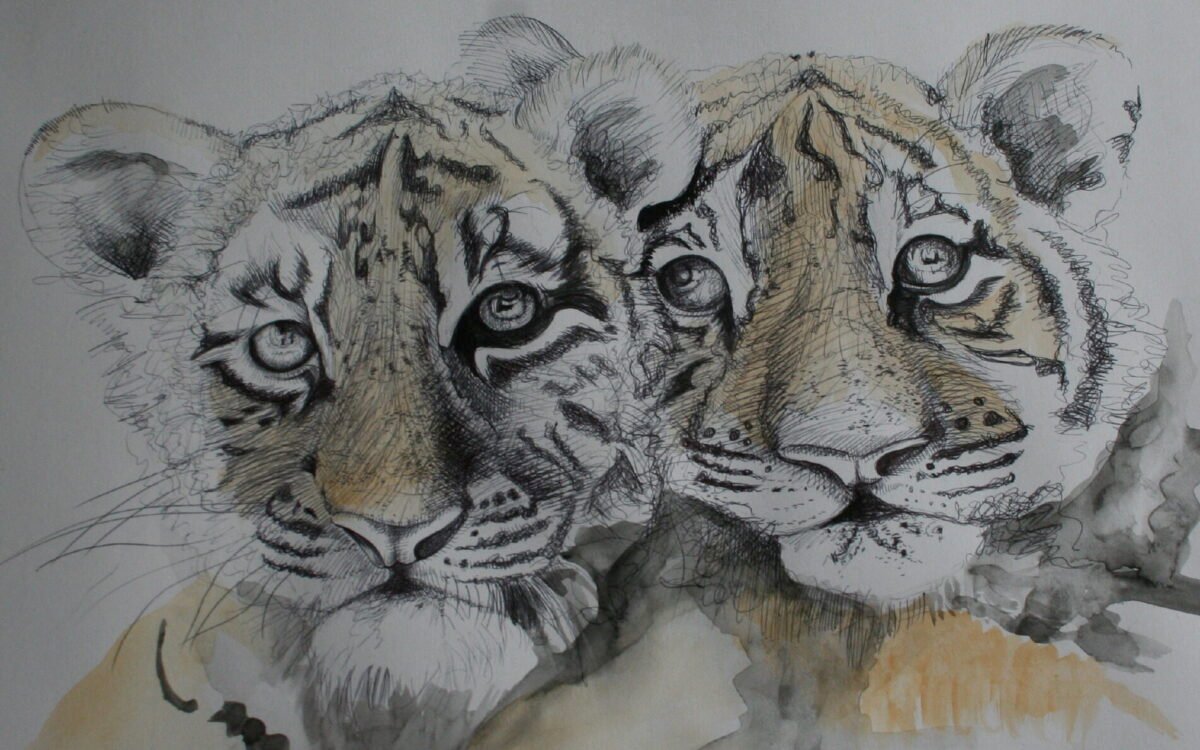
credit: TARTANFISH
Whether you’re journaling ideas, capturing everyday scenes, or experimenting with color and composition, your choice of medium sets the tone. Here’s how ink, graphite, and watercolor differ in technique, style, and flexibility.
Ink: Bold, Permanent, Expressive
Ink is dramatic. It’s crisp, fast-drying, and unapologetically permanent. Artists often turn to ink for graphic illustrations, expressive linework, and storytelling through contrast.
Pros
- Provides clean, high-contrast visuals
- Works well for line art, comic styles, and architectural sketching
- No need for sharpening or prepping
Cons
- Mistakes are hard to correct
- Bleeding or ghosting may occur on thinner paper
- Limited ability to shade unless paired with wash techniques
Ideal Sketchbook Pairing
- Heavyweight, smooth paper (100gsm+)
- Bristol boards or mixed media sketchbooks designed for minimal bleed
Creative Uses
- Urban sketching with fineliners
- Calligraphy or typography-focused pieces
- Adding ink washes for tonal variety
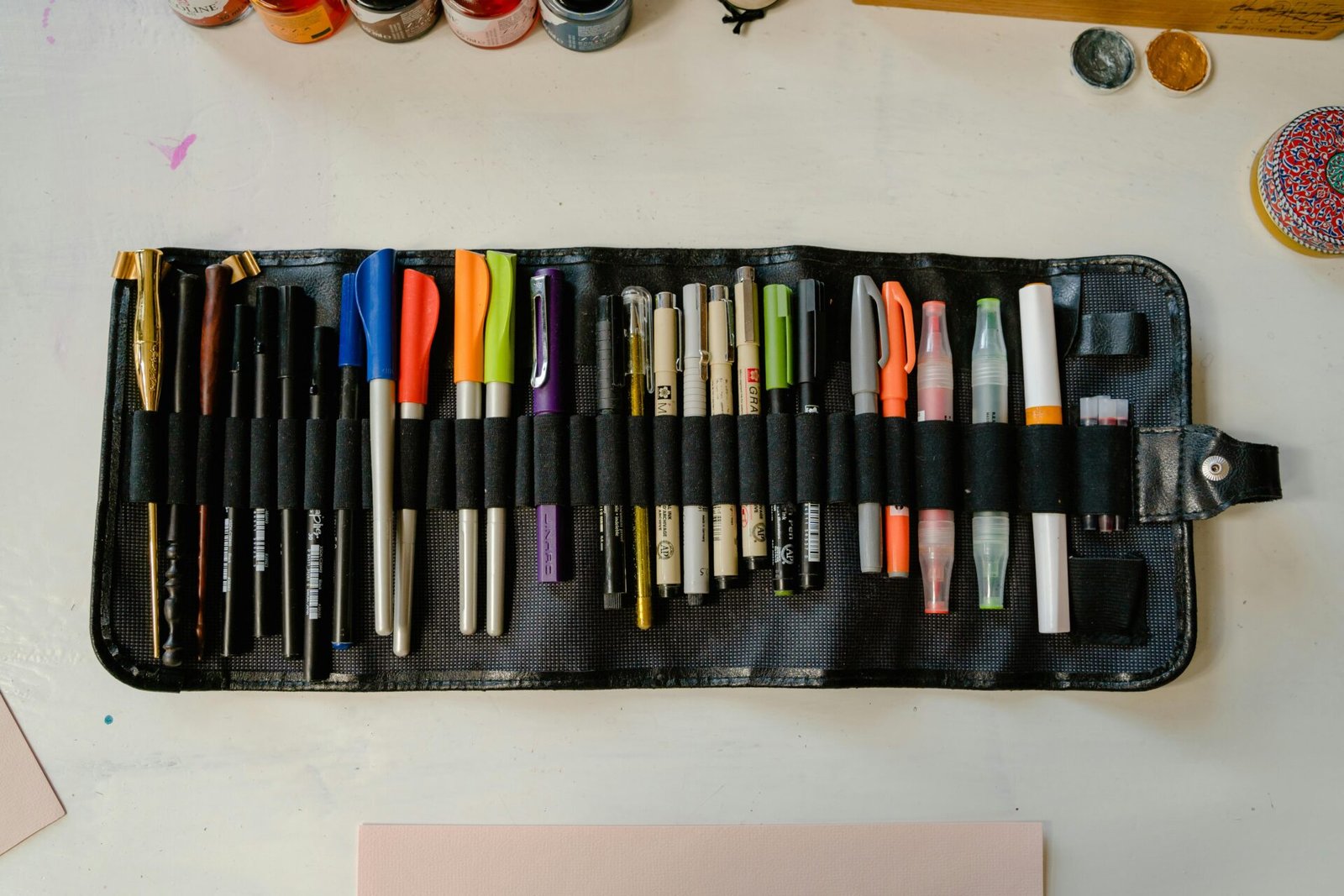
Graphite: Versatile, Forgiving, Timeless
Graphite is where many artists begin—and return. Its soft range of greys, erasability, and forgiving nature make it ideal for studies, textures, and quiet narratives.
Pros
- Offers flexibility from hard pencil lines to soft shading
- Easily erasable and layerable
- Available in various grades for control
Cons
- Prone to smudging without fixative
- Can lack visual impact if not contrasted well
Ideal Sketchbook Pairing
- Acid-free sketching paper (80–100gsm+)
- Tooth texture helps grip graphite grains
Creative Uses
- Gesture drawing and figure studies
- Preliminary layout sketches
- Shading practice and value work
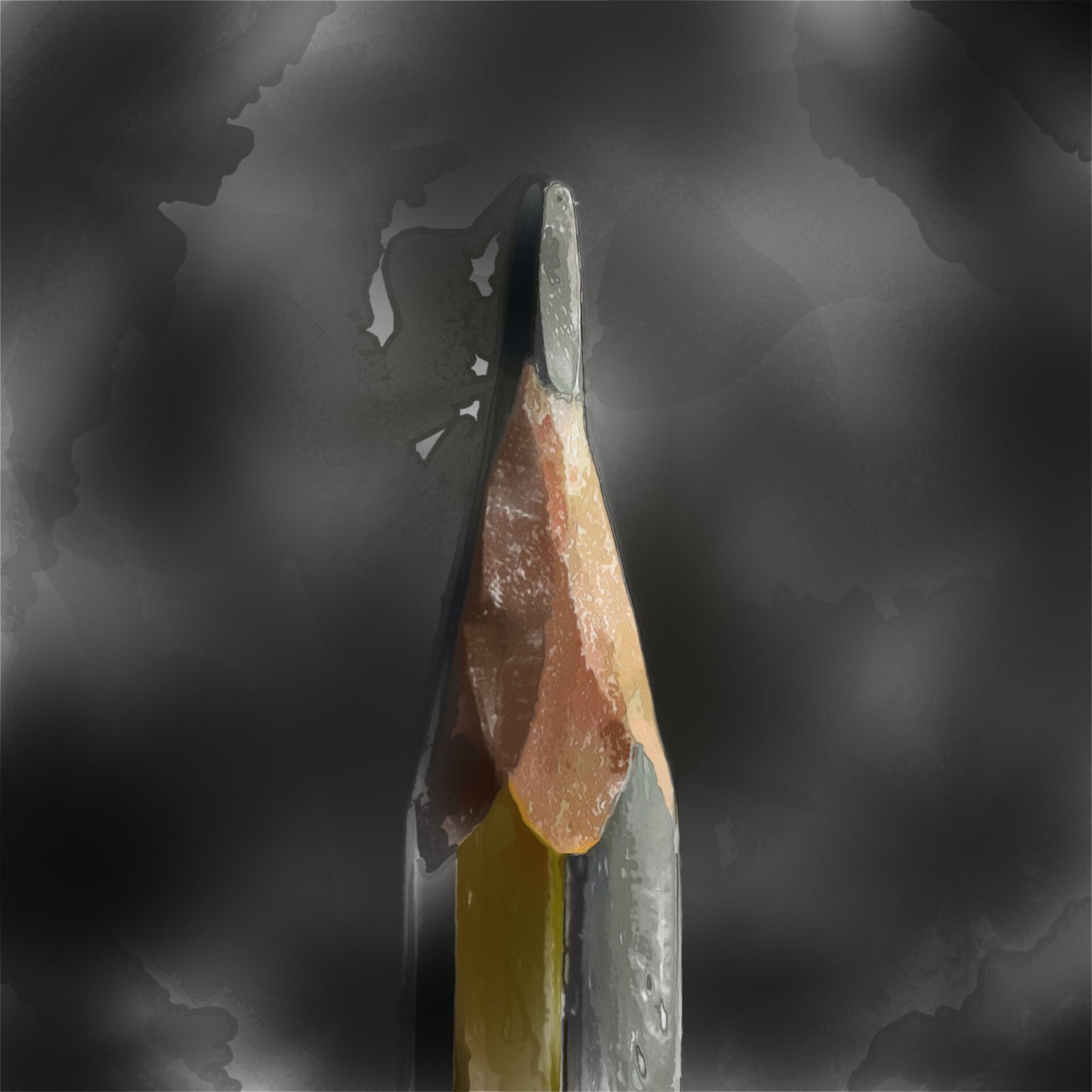
Watercolor: Fluid, Dreamlike, Unpredictable
Watercolor is emotion in motion. It rewards spontaneity and texture, allowing colors to bloom and blend beautifully—but it demands the right paper and a careful hand.
Pros
- Enables luminous, layered color effects
- Can evoke mood and atmosphere effortlessly
- Works well with ink and pencil overlays
Cons
- Requires watercolor-grade paper to avoid warping
- Difficult to control without experience
- Mistakes can be hard to fix
Ideal Sketchbook Pairing
- 200gsm+ cold-press or hot-press watercolor paper
- Spiral-bound or stitched sketchbooks with wide gutter margins
Creative Uses
- Landscapes and botanical illustrations
- Abstract studies with color washes
- Combining with pen for mixed media compositions

How to Choose Based on Style and Intent
Think of your sketchbook as a dialogue between your hand and the page. What kind of conversation do you want to have?
For precision and control:
- Go with graphite or ink. Ideal for studies and detailed work.
For emotion and atmosphere:
- Watercolor opens creative floodgates with rich, fluid color.
For mixed media experimentation:
- Pair graphite for planning, ink for definition, and watercolor for soul.
Sketchbooks.org | RESEARCH HUB:
Graphite Ink and Watercolor Art
Visual research is critical for any creative endeavor. We have compiled specialized links to lead you directly to images, videos, and inspiration for "Graphite Ink and Watercolor Art" across the web's best visual search platforms.
Medium Compatibility and Paper Types
Different papers react uniquely to each medium. Make sure your sketchbook supports your art style:
| Medium | Recommended Paper Type | Paper Weight |
|---|---|---|
| Ink | Smooth, bleed-resistant | 100gsm+ |
| Graphite | Light texture (“tooth”) | 80–100gsm+ |
| Watercolor | Cold-press or hot-press textured | 200gsm+ |
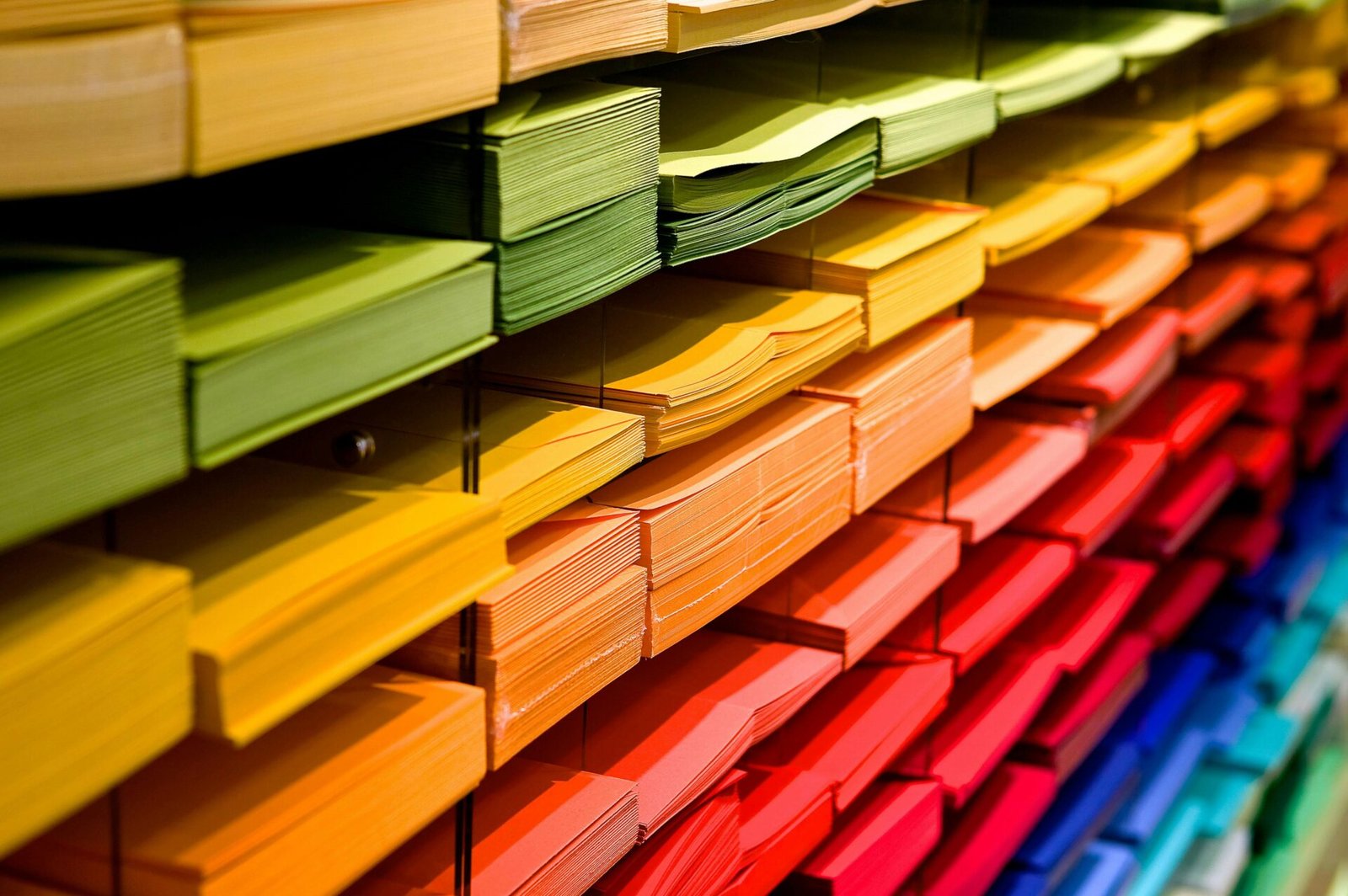
Maintenance and Tools
Keeping your tools in top shape ensures your medium delivers the best results.
Ink Tools
- Use archival ink pens and store them horizontally
- Clean nibs regularly if using dip pens or fountain pens
Graphite Tools
- Protect pages with tracing paper or fixative spray
- Sharpen pencils with precision tools
Watercolor Tools
- Dry brushes fully before storing
- Use palettes with wells to separate color mixes
Frequently Asked Questions
What sketchbook is best for all three mediums?
Choose a mixed media sketchbook with 200gsm+ paper to accommodate ink, graphite, and light watercolor work.
Can I use ink and watercolor together?
Yes, many artists use ink outlines followed by watercolor washes for vibrant contrast.
Will graphite work over watercolor?
It can, but results vary. Graphite may not adhere well over wet pigment and may smudge.
Which medium is best for beginners?
Graphite is the easiest to control and correct, making it ideal for newcomers.
How do I avoid watercolor bleeding?
Use proper watercolor paper and limit water application in adjacent areas.
Does paper weight really matter?
Absolutely—it determines how the medium behaves and whether the page warps or bleeds.
Are erasable ink pens good for sketching?
They can be helpful for practice but may not be archival or stable over time.
Can I layer mediums?
Yes. Try graphite first, ink second, and watercolor last to minimize disruption.
Should I use a fixative on graphite drawings?
If smudging is a concern, a light spray of fixative can help preserve your work.
What’s the best sketchbook for travel?
Choose a portable hardbound sketchbook with mixed media paper and an elastic closure.
Final Thoughts
Choosing between ink, graphite, and watercolor isn’t just about aesthetics—it’s about intention. The medium you reach for becomes your visual language. Let graphite guide your form, ink carve your story, and watercolor express your mood. With the right sketchbook and mindset, any page can become a masterpiece.
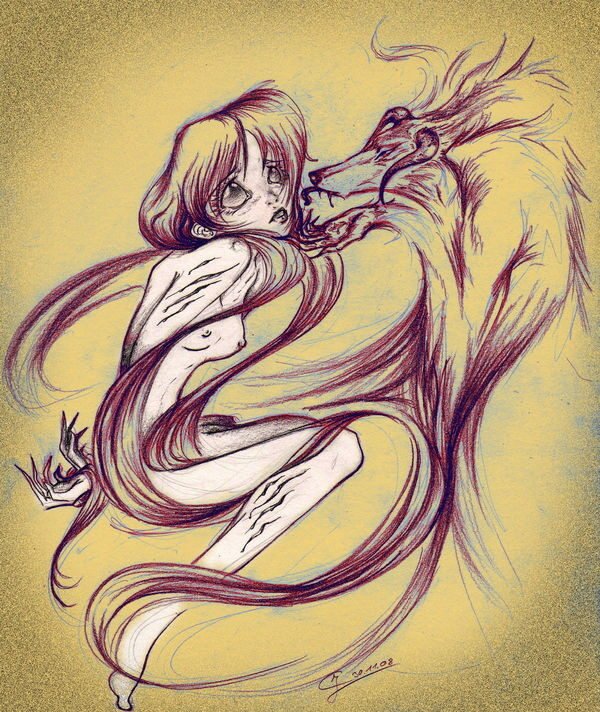
credit: IWAHARA
Ready to Share Your Work?
Do you ever use your sketchbook to practice specific techniques?
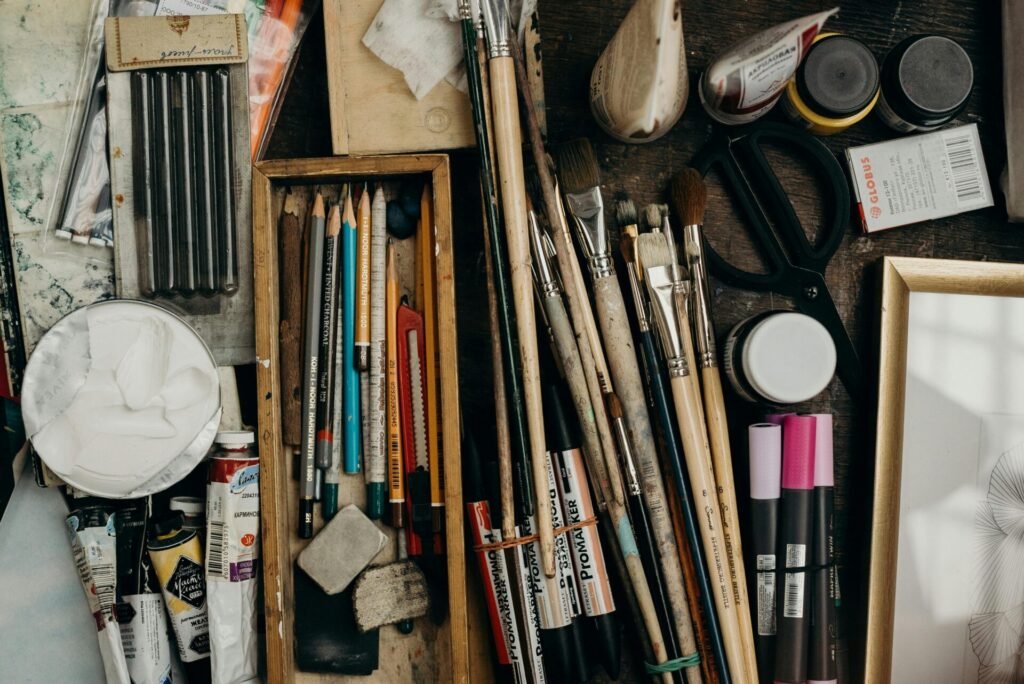

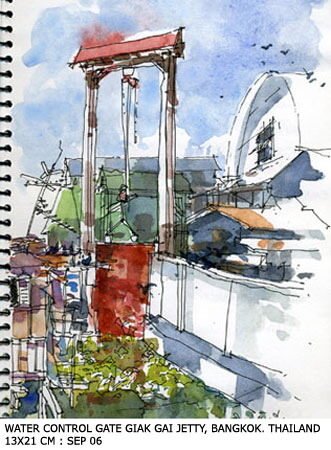
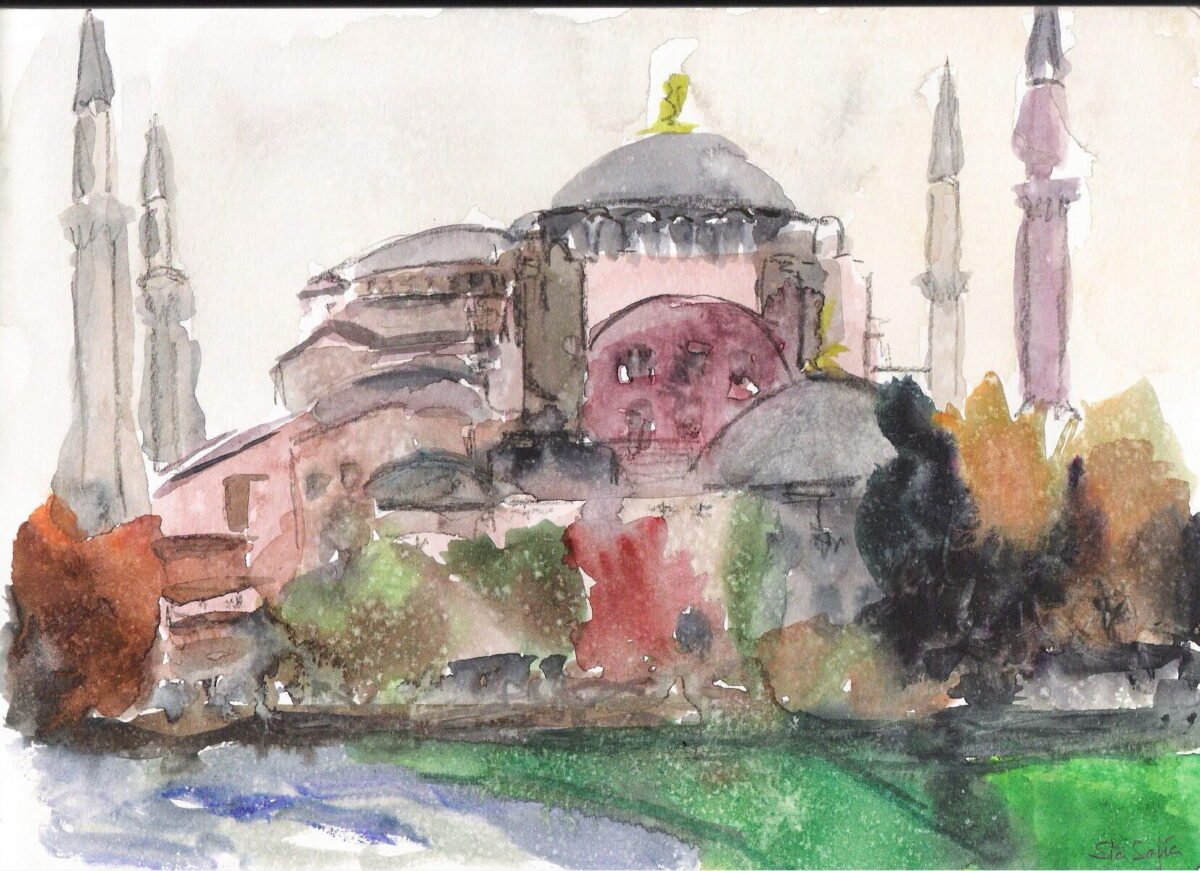
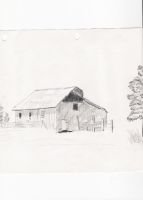
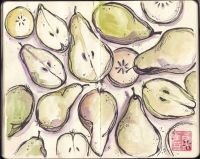

Start in light pencil, switch to Ink, then bring in the watercolor. Classic combo!
Ink and water is good too.